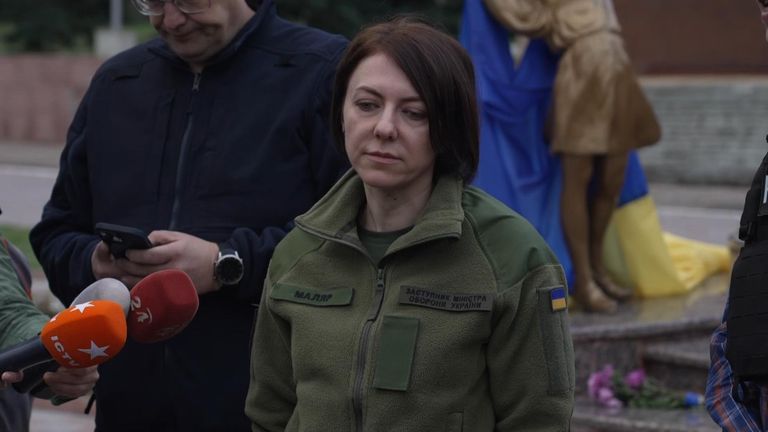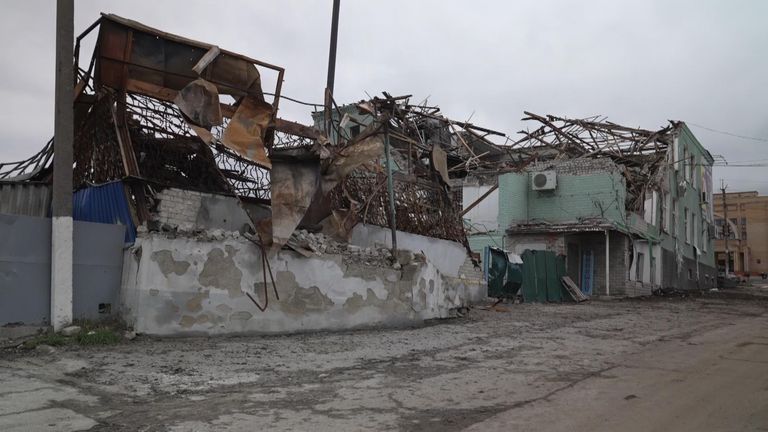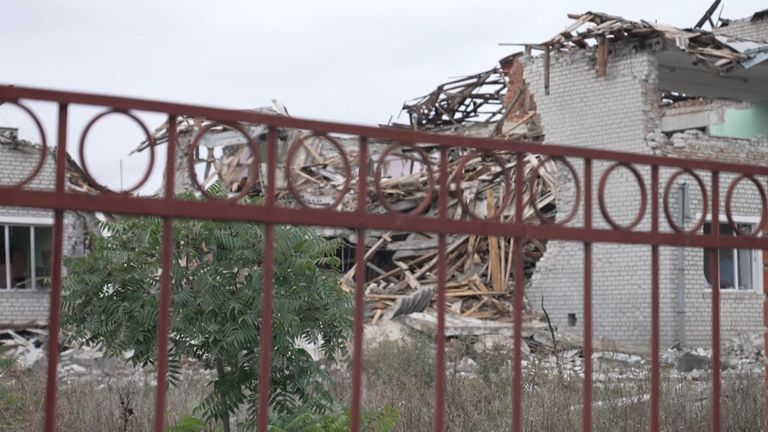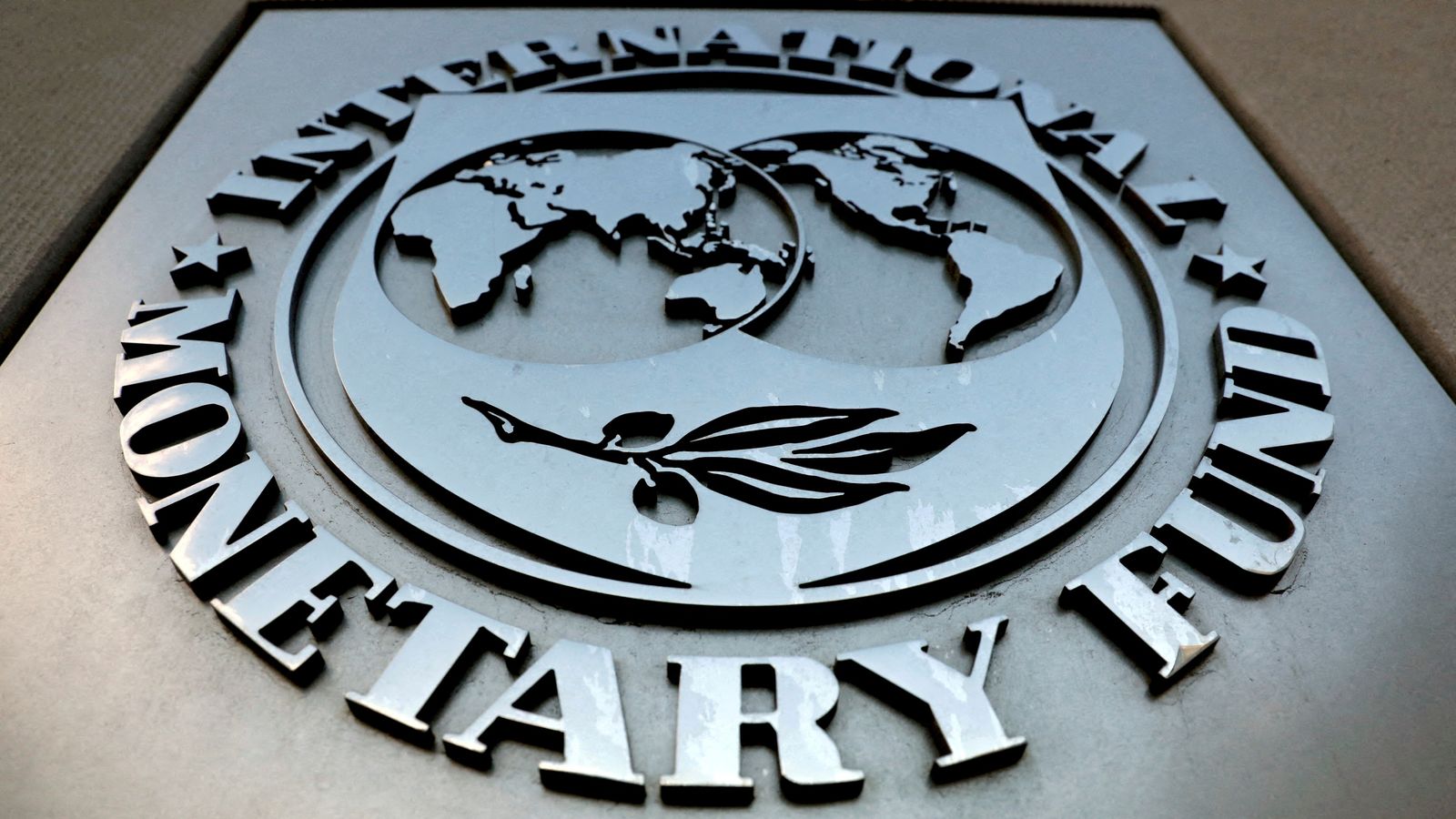A scrum of desperation surged around the Ukrainian relief truck in a town that was liberated from Russian control just days earlier.
“Please give me an aid parcel son, I have a walking stick,” said one tiny, old woman, crushed up against the back of the vehicle as others tried to grab for help over her head.
The residents of Balakliya cheered the sudden banishing of the Russian soldiers from their streets. But they said life is still hard because the town is without power, many buildings have been destroyed and there are landmines littering the ground in surrounding fields.
One man, his face drawn, said a farm that kept cows had been badly damaged in shelling during the past nearly seven months of war. “The cows were able to wander off, but they are being killed because they step on the mines,” he said.
Balakliya was the first key town to be retaken by the Ukrainians in a lightning advance through the eastern region of Kharkiv, launched without fanfare on 6 September.
Hanna Maliar, Ukraine’s deputy defence minister, said the counter-offensive had already reclaimed terrain equivalent in scale to more than twice the size of Greater London.
Ukraine war – all updates and latest news, live
She said Ukraine would recapture the entirety of the region.
“It is absolutely a turning point in this war,” the minister told Sky News on Tuesday, standing in the town centre, next to a newly-raised Ukrainian flag.
“It shows the Ukrainian military’s motivation, despite Russia still having a greater number of weapons.”
Read more:
Full security is being restored,’ President Volodymyr Zelenskyy tells his people
Russia ‘spent £260m on secret operations to influence politicians around the world’
With Russian forces gone, Ukrainian investigators are moving in to gather evidence of suspected war crimes that took place during the occupation.
One such incident allegedly on the day the Ukrainian counter-offensive began.
Sergii Bolvinov, the chief investigator in Kharkiv, said two civilian men were shot dead in their vehicle by Russian soldiers at a checkpoint in Balakliya.
Bullet holes in bodies
“In the morning of 7 September, local people found the bodies and buried them here,” he said, gesturing to a hole in a patch of soil.
The bodies have since been dug back up, put into body bags and will be taken for forensic examination.
“We registered bullet holes in both of the bodies,” the chief investigator said.
The remains of a total of five people have been found as part of war crimes investigations so far, a second official said, speaking separately.
“But believe me this is not the end, unfortunately. This is not the final data,” he told a large group of journalists as part of a media facility arranged by the Ukrainian authorities of Balakliya and a nearby village.
Eyewitness: Bodies left to rot as people describe burying neighbours – life in a liberated village
Access to the frontline has been heavily restricted since the start of the counter-offensive, making it very hard – independently – to gain a sense of what has been going on.
One of the alleged crime scenes is the Balaklyia police station.
Investigators said it was used to torture people. One man may even have been beaten to death, according to the chief investigator.
Windowless, unlit cells
He said up to 300 people in total were detained in appalling conditions by Russian troops at the police station.
Five closet-like cells, unlit and windowless, lined one short, dingy corridor.
Prisoners were squashed into the rooms, some without access to a toilet, the chief investigator said. He showed where detainees had scratched lines in the wall to mark the number of days they had been held.
One added up to 70 days, another was 32 days and another was 26.
In another part of the station was a room the investigator said had been used to torture prisoners with electric cables.
Police also found a larger room, with a line of dirty chairs up against one wall. They said this had been an interrogation place.
The chief investigator said officers had heard testimony of detainees being beaten in here.
Liberation
Ukrainian forces launched their assault to liberate Balakliya early in the morning of 6 September.
Residents in nearby Verbivka village said they saw Russian troops fleeing from the local school, which they had used as a military headquarters during the occupation.
Later that same day, a Russian missile was sent hurtling back into the building, destroying it.
A crowd of local residents gathered close to the ruins on Tuesday, as Ukrainian officials escorted a large group of journalists to the village and into Balakliya.
“What about our grandchildren?” wailed one woman. “We have no school.”















